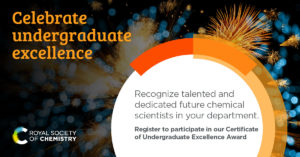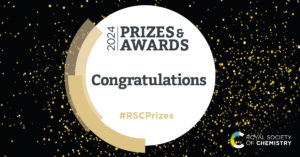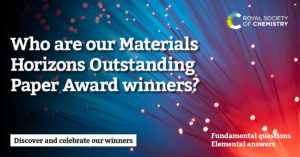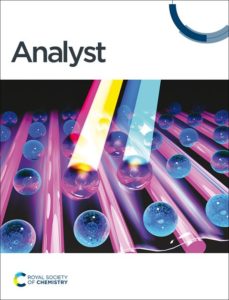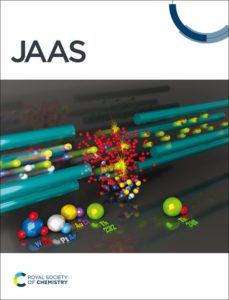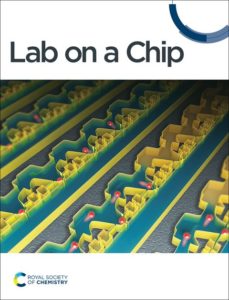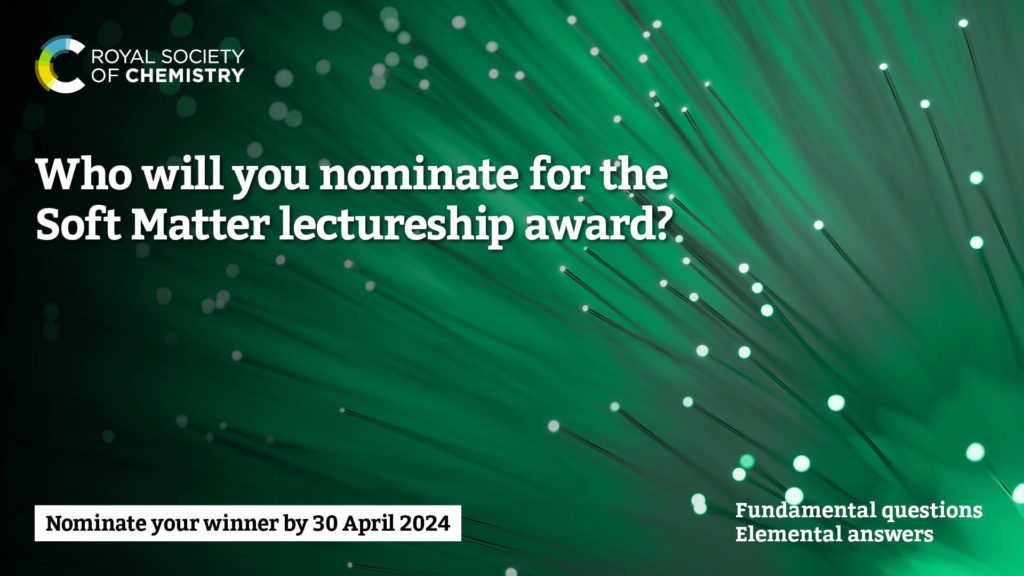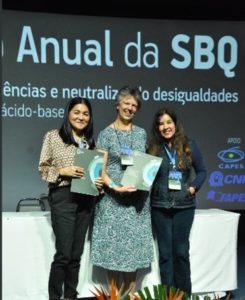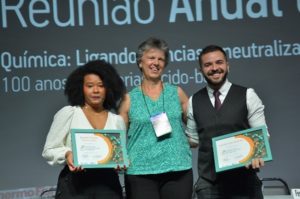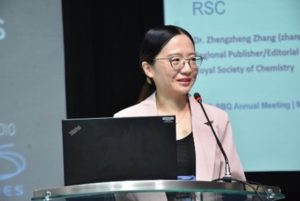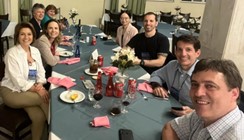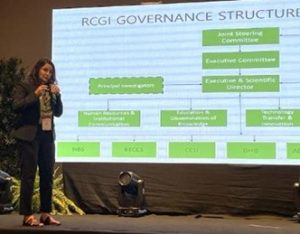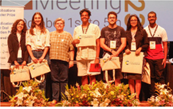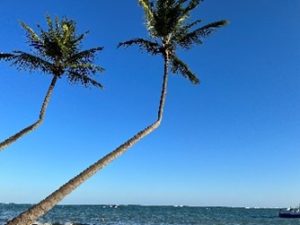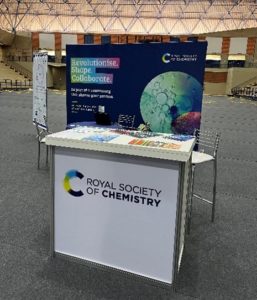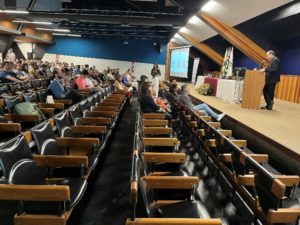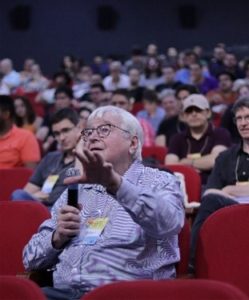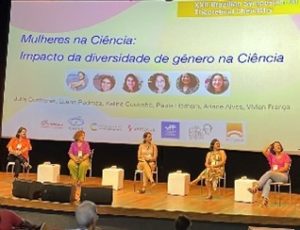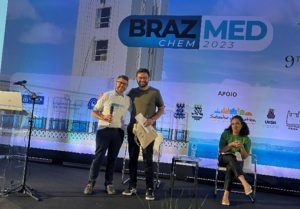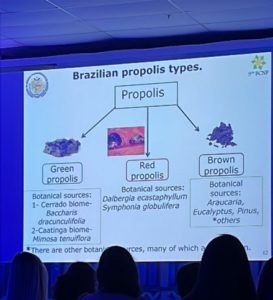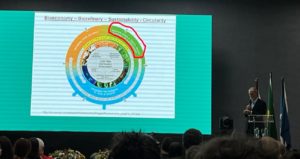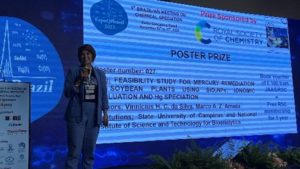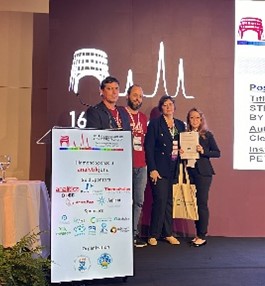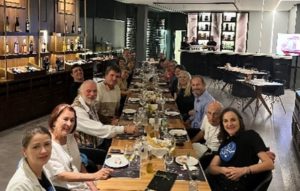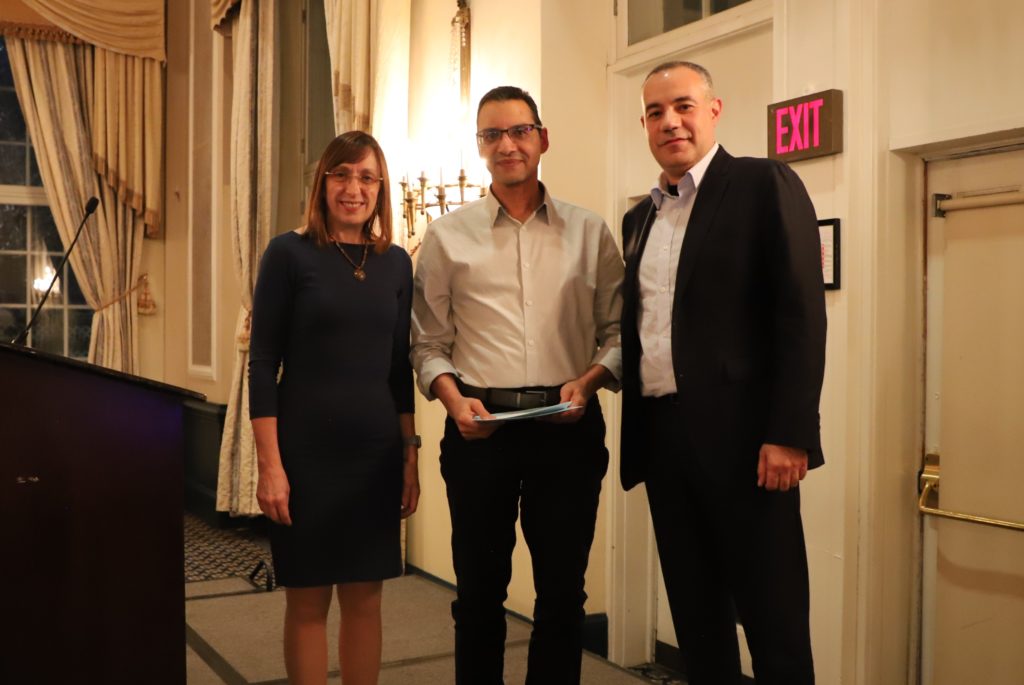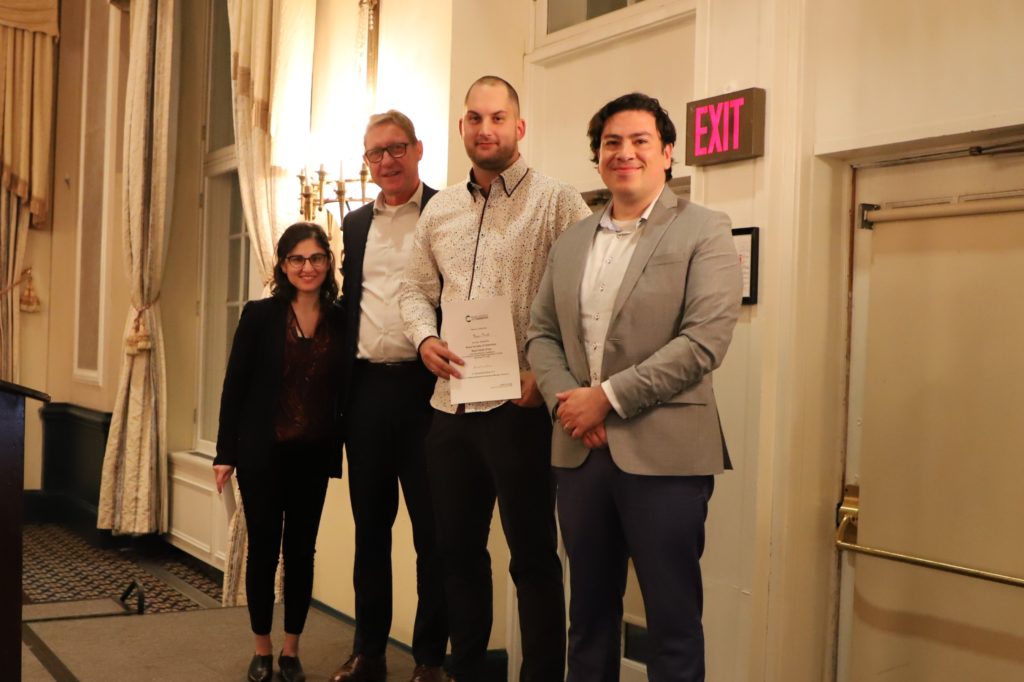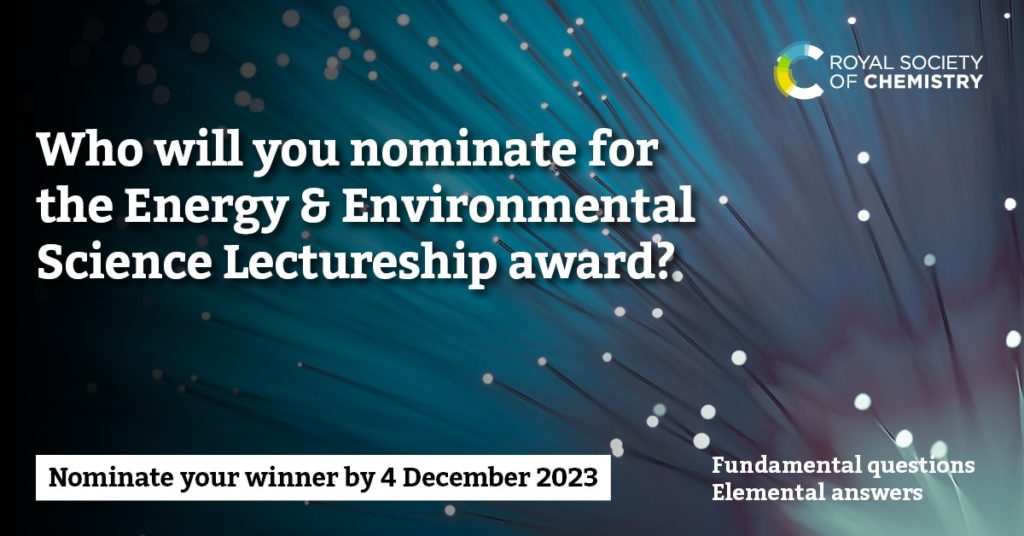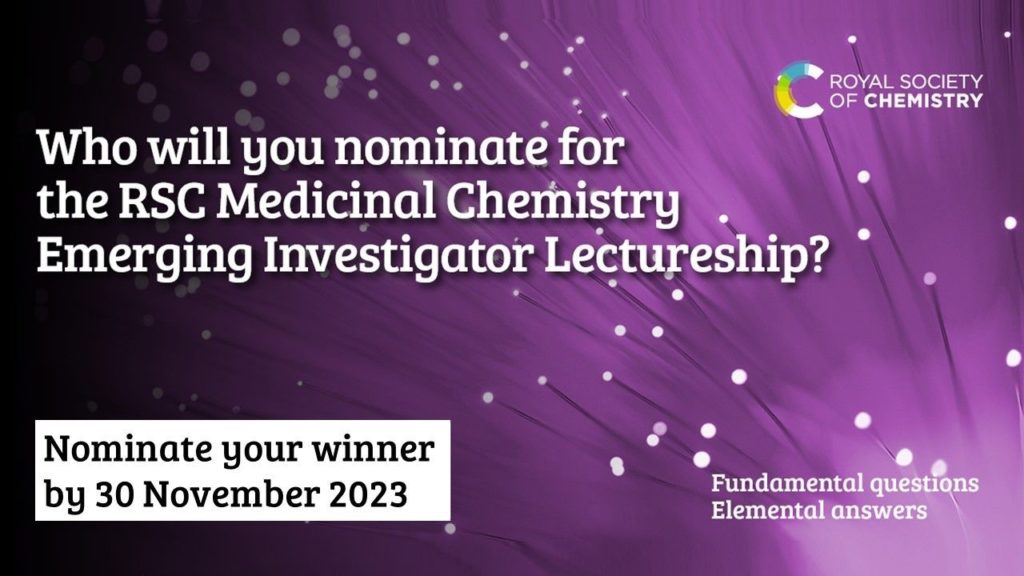Each year, the RSC recognizes the vital role of peer review in preserving quality and integrity in chemical science through the recognition of outstanding peer reviewers. We would like to highlight those reviewers who are in the Americas and were chosen by the RSC journals’ editorial teams for this distinction. Click here to view the full list for all outstanding peer reviewers internationally, and read below to find out who from the Americas made this prestigious list
Analyst
Mauro Bertotti, Universidade de São Paulo, Brazil
Zachary Schultz, The Ohio State University, USA
Analytical Methods
Carlos Garcia, Clemson University, USA
Eduardo Richter, Universidade Federal de Uberlândia, Brazil
Thiago Paixao, Universidade de São Paulo, Brazil
Tiago Silva, Universidade Federal de Vicosa, Brazil
Biomaterials Science
Hongyu Chen, Rensselaer Polytech Institute School of Engineering, USA
Catalysis Science & Technology
Tae Jin Kim, Stony Brook University, USA
ChemComm
Arindam Mukhopadhyay, Idaho National Laboratory, USA
Ilich Ibarra , Universidad Nacional Autónoma de México, Mexico
Patrick Sarver, Massachusetts Institute of Technology, USA
Seok Ki Choi, University of Michigan Medical School, USA
Chemical Science
Katerine Bujold, McMaster University, Canada
Laura M. Hernandez, McGill University , Canada
Marina Petrukhina, University at Albany – State University of New York, USA
Ming Xian, Brown University, USA
Sascha Feldmann, Harvard University, USA
Sharon R. Neufeldt, Montana State University, USA
Xiyue Zhang, University of Maryland, USA
Chemical Society Reviews
Ashlee Howarth, Concordia University, Canada
Warren Piers, University of Calgary, Canada
CrystEngComm
Tori Forbes, University of Iowa, USA
Dalton Transactions
Christian Goldsmith, Auburn University, USA
Janet R Morrow, State University of New York at Buffalo, USA
Digital Discovery
Aparajita Dasgupta, Pfizer Andover, USA
Daniel Tabor, Texas A&M University College, USA
Fabien Plisson, Centro de Investigación y de Estudios Avanzados Unidad Irapuato, Mexico
Faezeh Habibzadeh, National Research Council Canada, Canada
Fanwang Meng, Massachusetts Institute of Technology, USA
Kiran Vaddi, University of Washington, USA
Phillip M. Maffettone, Brookhaven National Laboratory, USA
EES Catalysis
Aditya Nandy, University of Chicago, USA
Energy & Environmental Science
Adam Nielander, SLAC National Accelerator Laboratory, USA
Kevin Huang, University of South Carolina, USA
Leanne Chen, University of Guelph, Canada
Energy Advances
Hongyan Gao, University of Massachusetts Amherst, USA
Xiao Li, The University of Alabama, USA
Environmental Science: Advances
Jorge Masini, University of Sao Paulo, Brazil
JP Nicot, University of Texas at Austin, USA
Environmental Science: Atmospheres
Jessica Tryner, Colorado State University, USA
Rodney Weber, Georgia Institute of Technology, USA
Zezhen Cheng, Pacific Northwest National Laboratory, USA
Environmental Science: Nano
Frederick Klaessig, Pennsylvania Bio Nano Systems, USA
Roberta Urban, Universidade Federal de Sao Carlos, Brazil
Environmental Science: Processes & Impacts
Rachel O’Brien, University of Michigan, USA
Environmental Science: Water Research & Technology
Allyson McGaughey, The University of New Mexico, USA
Fangqiong Ling, Washington University in St Louis, USA
Lindsay Anderson, Dalhousie University, Canada
Virender K. Sharma, Texas A&M University, USA
Food & Function
Cesar Fraga, University of Buenos Aires, Argentina
Rodrigo Valenzuela, University of Chile, Chile
Green Chemistry
Audrey Moores, McGill University, Canada
Bruce Lipshutz, University of California, USA
Guilherme Jardim, Universidade Federal de Minas Gerais (UFMG), Brazil
Inorganic Chemistry Frontiers
Joseph M. Zadrozny, The Ohio State University, USA
Linda Doerrer, Boston University, USA
Journal of Analytical Atomic Spectrometry
Aparajita Dasgupta, Pfizer Andover, USA
Cesar Costa Vera, Escuela Politecnica Nacional, Ecuador
Journal of Materials Chemistry A
Daiwei Wang, The Pennsylvania State University, USA
Dipak Rana, University of Ottawa, Canada
Hongkui Zheng, University of California, Irvine, USA
Xingkang Huang, The University of Chicago, and Argonne National Laboratory, USA
Journal of Materials Chemistry B
Bethany Patenall, Harvard University, USA
Hitesh Kumar Waghwani, GlaxoSmithKline, USA
Jessica Winter, Ohio State University, USA
Shuo Han, University of Missouri Kansas City, USA
Trevor Douglas, Indiana University, USA
Journal of Materials Chemistry C
Bayram Saparov, University of Oklahoma, USA
Carlo Perini, Georgia Institute of Technology, USA
Luiz Zagonel, University of Campinas – UNICAMP, Brazil
Stephen Barlow, University of Colorado at Boulder, USA
Torsten Hegmann, Kent State University, USA
Venkatesh Gude, Wake Forest University School of Medicine, USA
Weiwei Zheng, Syracuse University, USA
Lab on a Chip
Jonathan Sabaté del Río, IBS, Center for Soft and Living Matter, USA
Mei He, University of Florida, USA
Wendell K T Coltro, Federal University of Goias, Brazil
Materials Advances
Ajeet Kaushik, Florida Polytechnic University, USA
Shreyasi Chattopadhyay, Rice University, USA
Materials Horizons
Alex Chortos, Purdue University, USA
Chunjie Zhang, 3M Company, USA
Phillip Messersmith, University of California, Berkeley, USA
Vincent Rotello, University of Massachusetts, USA
Molecular Omics
Shuchen Feng, Loyola University Chicago, USA
Molecular Systems Design & Engineering
Henrique Silva, Jr., Universidade Federal Fluminense, Brazil
Rachael Mansbach, Concordia University, Canada
Víctor García-López, Louisiana State University, USA
Yilei Wu, Stanford University, USA
Nanoscale
Bo Li, Kennesaw State University, USA
Eva Hemmer, University of Ottawa, Canada
Shenqiang Ren , University of Maryland, USA
Zhiwei Li, Northwestern University, USA
Nanoscale Advances
Bo Li, Kennesaw State University, USA
Hui Wang, University of South Carolina, USA
Nanoscale Horizons
Shouheng Sun, Brown University, USA
New Journal of Chemistry
Simon Rondeau-Gagné, University of Windsor, Canada
Organic & Biomolecular Chemistry
Yumin Dai, Takeda Pharmaceutical, USA
Organic Chemistry Frontiers
Eric W. Webb, University of Michigan, USA
Robert M. Ward, Dow Chemical Company, USA
Yoshio Hato, Massachusetts Institute of Technology, USA
PCCP
Armen Kocharian, California State University, USA
Carlos Silva Jr, Universidade Federal do Para, Brazil
Erin Johnson, Dalhousie University, Canada
Michael Schuurman, National Research Council of Canada, Canada
Ryan C. Fortenberry, University of Mississippi, USA
Polymer Chemistry
Helen Tran, University of Toronto, Canada
Monica Ohnsorg, University of Colorado Boulder, USA
Reaction Chemistry & Engineering
Abhijit Talpade, Eastman Chemical Company, USA
Connor Coley, Massachusetts Institute of Technology, USA
Daniela Quaglia, Universite du Quebec a Montreal, Canada
RSC Advances
Abhispa Sahu, SiOxMed, LLC, USA
Ajay B. Urgunde, Auburn University, USA
Anindita Sarkar, University of Michigan, USA
Chaoying Ding, University of Delaware, USA
Hanuman Kalmode, Scientist-II, Abzena LLC, USA
James Sheehan, The University of Alabama, USA
Luning Wang, Stanford University, USA
Lushun Wang, Stanford University, USA
Rafael Vargas-Bernal, University of Guanajuato, Mexico
Scott Crawford, National Energy Technology Laboratory, USA
Shishir Chourey, Bristol-Myers Squibb Co R&D Lawrenceville, USA
Sohini Bhattacharyya, Rice University, USA
Suvendu Biswas, Northwestern University, USA
Xiuling Liu, Michigan Technological University, USA
Yifan Zhu, Rice University, USA
Yijie Yin, University of California San Diego, USA
Yixuan Li, Tesla Motors Inc., USA
RSC Applied Interfaces
Giovanni Fanchini, University of Western Ontario, Canada
ARC Applied Polymers
Lindsey Bezek, Los Alamos National Laboratory, USA
Peiran Wei, Texas A&M University, USA
Xiao Zhao, GCP Applied Technologies Inc., USA
RSC Medicinal Chemistry
Gerard Wright, McMaster University, Canada
Herman O Sintim, Purdue University, USA
Jun Wang, Rutgers University, USA
Zhipeng Wang, Ferring Research Institute, USA
RSC Sustainability
Song Luo, University of Delaware, USA
Sensors & Diagnostics
Ezequiel Martin Vidal, Universidad Nacional del Sur, Argentina
Netzahualcóyotl Arroyo-Currás, Johns Hopkins School of Medicine, USA
Olga Eremina, University of Southern California, USA
Robert J. Meagher, Sandia National Laboratories, USA
Soft Matter
Howard Stone, Princeton University, USA
Jacinta Conrad, University of Houston, USA
Ramon Castaneda-Priego, University of Guanajuato, Mexico
Sustainable Energy & Fuels
David Dayton, Research Triangle Institute, USA


